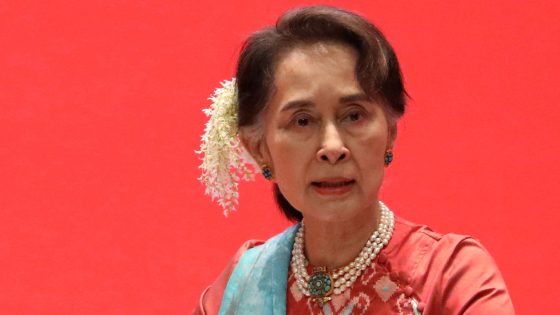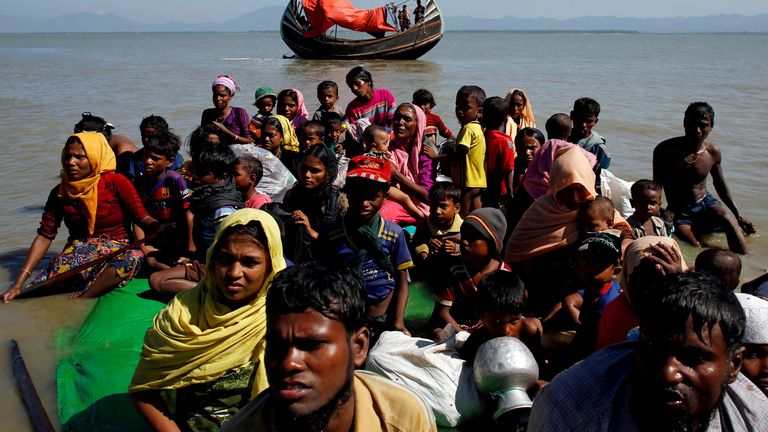Myanmar’s former leader Aung San Suu Kyi has been moved from prison to house arrest, according to the country’s military government.
Ms Suu Kyi’s government was overthrown by a military coup in 2021 and she has been detained since then, facing 27 years in prison for crimes ranging from treason and bribery to violating telecommunications law.
Junta spokesperson Major General Zaw Min Tun said the 78-year-old had been moved “since the weather is extremely hot”.
In comments reported by four media outlets, he added: “It is not only for Aung San Suu Kyi… for all those who need necessary precautions, especially elderly prisoners, we are working to protect them from heatstroke.”
In February Ms Suu Kyi’s son Kim Aris said she was being held in solitary confinement and her health was “not as good as it was in the past”, although she was in good spirits.
Read more:
Stuart Ramsay inside Myanmar’s secret jungle hospital
Stuart Ramsay in Myanmar: What leaders don’t want the world to see
A spokesperson for the NUG shadow government called for Ms Suu Kyi to be released, along with Win Myint, Myanmar’s ousted president, who is also under house arrest.
NUG spokesperson Kyaw Zaw said: “Moving them from prisons to houses is good, as houses are better than prisons.
“However, they must be unconditionally freed.
“They must take full responsibility for the health and security of Aung San Suu Kyi and Win Myint.”
Read more:
Aung San Suu Kyi: From symbol of human rights to fighting claims of genocide
Inside Myanmar: Schools and hospitals attacked on the frontline
Aung San Suu Kyi was seen as one of the greatest hopes for human rights around the world for much of her life.
After a long struggle against the country’s military rulers and many years under house arrest, she was allowed to run in the first openly-contested election in 25 years in 2015, and won in a landslide.
She became the first state counsellor of Myanmar – the de facto head of government, equivalent to a prime minister – on promises to reduce the army’s involvement in politics, court foreign investment, and to help the Rohingya Muslims, a mistreated minority.
In 2017, Rohingya militants attacked security forces in Rakhine State, prompting a military response that included killing people, torching villages and forcing hundreds of thousands to flee their homes, actions described by the UN as ethnic cleansing.
Ms Suu Kyi’s response was to blame “terrorists” for an “iceberg of misinformation”, and defended the military, saying soldiers were exercising the “rule of law”.
This was the beginning of her fall from grace to the outside world and a number of institutions took back awards they had given her, blaming her refusal to act over the military’s treatment of the Rohingya.
In 2019, she was at the Hague’s International Court of Justice to face charges of genocide brought against Myanmar, but said the crackdown had been a legitimate military operation against terrorists.
In November 2020, she won another election but was detained by the military in February 2021 as part of a coup.
The coup led to widespread street protests brutally suppressed by the country’s security forces, and to civil war.
Source Agencies




